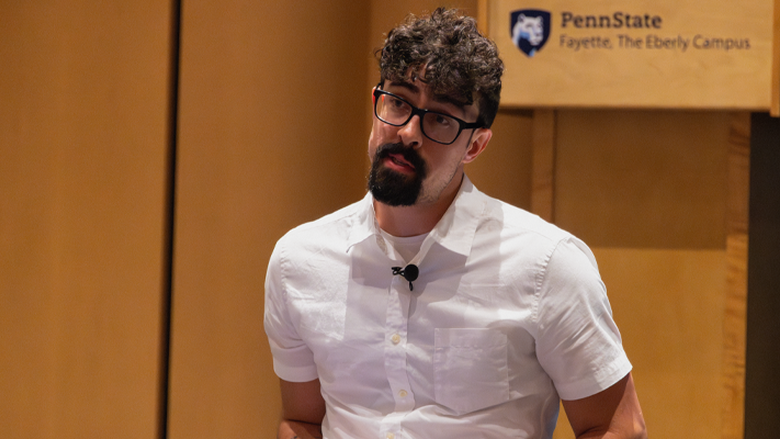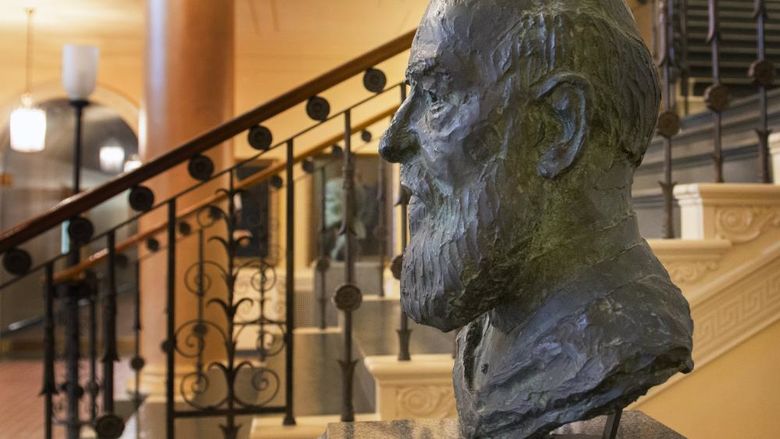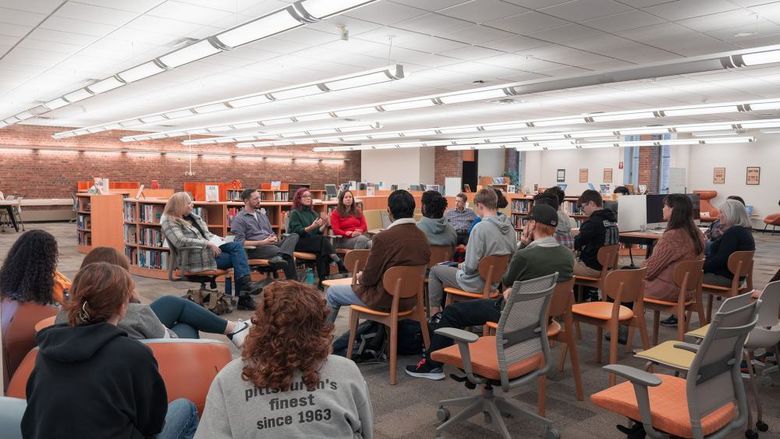UNIVERSITY PARK, Pa. — Jane Charlton, professor of astronomy and astrophysics in the Eberly College of Science; Richard Doyle, professor of English in the College of the Liberal Arts; and Allen Larson, associate professor of communications at Penn State New Kensington, have received the Alumni/Student Award for Excellence in Teaching and have been named 2015 Penn State Teaching Fellows.
Who says college isn’t fun and games? Charlton has combined her teaching and gaming talents to create a virtual world where students “play” their way through Astro 001: The Astronomical Universe. It’s so expansive supplemental class time isn’t required — just her guidance in a forum she’s developed.
Want to learn about the solar system? Why not fly from planet to planet pursuing a quest to save life forms in Jupiter’s atmosphere? Or go from star to star, collecting temperatures and luminosities before categorizing them for a future study? In Charlton’s game, she boldly goes where no one has gone before.
“My vision is to embed students in the universe and allow them to experience and explore, learning naturally by observing their surroundings,” said Charlton, who has been teaching the traditional course for more than 20 years. She says astronomy touches people at their core because it connects to the purpose and mystery of our existence.
Charlton isn’t out in space, however. She closely watches students’ progress through the forum, notifying them of upcoming assignments and assisting with gameplay. One student said she was able to form a more personal relationship online than she does with the majority of professors within the classroom.
One student said “the game helped me stay engaged throughout the course and because of it, I learned more than I ever thought I’d know about the universe.” Another called it “definitely the most unique class I’ve ever taken at Penn State.”
Not much of a gamer? Try another option for the course, as 13,000 students already have — a complete class taught entirely within an online science fiction novel.
Doyle calls his students “responsible participants in high velocity, high level, always serious and sometimes zany investigations into how we think about topics ranging from alien abduction to the King James Bible.”
He uses his personality and passion to drive his lectures so that students might, instead of consuming knowledge, discover the meaning within themselves.
His unorthodox methods, which one former student called a “sublime and dynamic event,” no doubt have a lasting impression.
“He became my mentor and friend, a man I still seek out 21 years later to further education on topics from a multitude of disciplines,” the alum said. “He never stopped being my teacher and never will. That is the power of his teaching ability, capacity and originality.”
Another student found his approach of not spoon-feeding lesson plans to be refreshing.
“The best teaching is found in a mutual respect and love between student and teacher,” the student said. “Doyle made every student yearn for knowledge. For that reason, I never missed a homework assignment or skipped a class.”
Some of Doyle’s notable classes include ENG 104: The Bible as Literature and ENG 191: Science Fiction.
Larson aims to engage his students. He doesn’t want them to be crossing off a list of completed assignments. He prefers they take an active approach to the learning process.
“Students need to be witnesses,” he said. “They need to be specifically seen and heard as the individual learners and thinkers that they are in order to experience their education as meaningful.”
In his COMM 150: Cinema Art class, which is generally taught as a general survey course, his students are tasked with, as a group, creating a short film from scripting to final editing, using what they learned in the film appreciation portion of the course. This, he says, is where a genuine understanding of the course materials takes hold.
One student said Larson’s methods “demonstrated his mastery of the subject matter and his ability to effectively communicate the subject matter in a way that was both interesting and engaging.”
The Penn State Alumni Association, in conjunction with undergraduate and graduate governing bodies, established the Award for Excellence in Teaching in 1985 to honor distinguished teaching, and provide encouragement and incentive for excellence in teaching. Recipients are expected to share their talents and expertise with others throughout the University system during the year following the award presentation.



